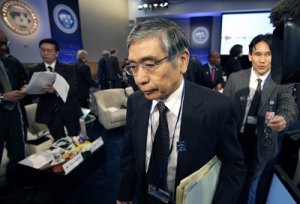Monetary policy decisions from the U.S. Federal Reserve and, more importantly, the Bank of Japan (BOJ), are expected to drive investor sentiment in Asia-Pacific this week.
While expectations for a Fed hike in September have abated somewhat following a series of soft economic data, growing uncertainty over what the BOJ would do is a likely source of anxiety for investors.
They would be seeking clarity from Governor Haruhiko Kuroda to determine how much firepower the central bank has left to support Japan’s moribund economy, its appetite to purchase more government debt and its ability to tame a strong yen.
Both the Fed and the BOJ would begin their two-day policy meetings on September 20.
“It’d better be a very ‘comprehensive’ assessment from the BOJ,” said Sameer Goel, who leads the Asia Macro Strategy team at Deutsche Bank, in a note. “It needs to carry with it either a well explained policy action, or (probably more likely) a strong statement of forward guidance.”

Convincing skeptics would be a tall order. Goel said the BOJ needed to explain its intent and ability to address “concerns about illiquidity in the bond markets, and the profitability of the financial sector, without risking a perception of ‘tapering’.”
The controversial negative interest rate policy also looked set to be in play once again.
Last week, a report in the Japanese business daily Nikkei suggested the negative interest rate policy could become the centerpiece of future monetary easing, while the BOJ was considering a reduction in its purchases of long-term Japanese government bonds (JGB) with maturities longer than 25 years.
via CNBC
